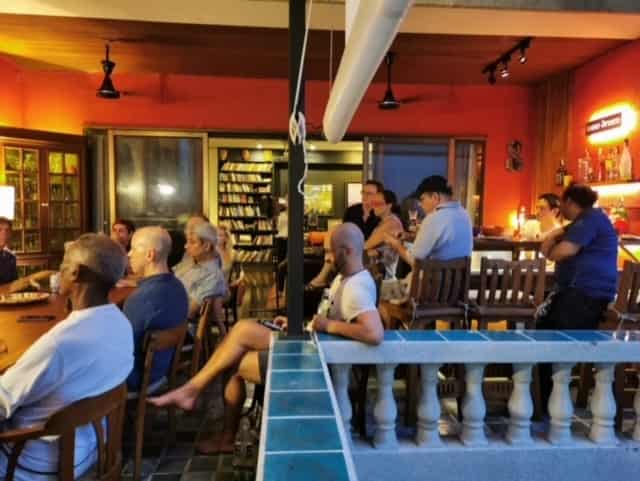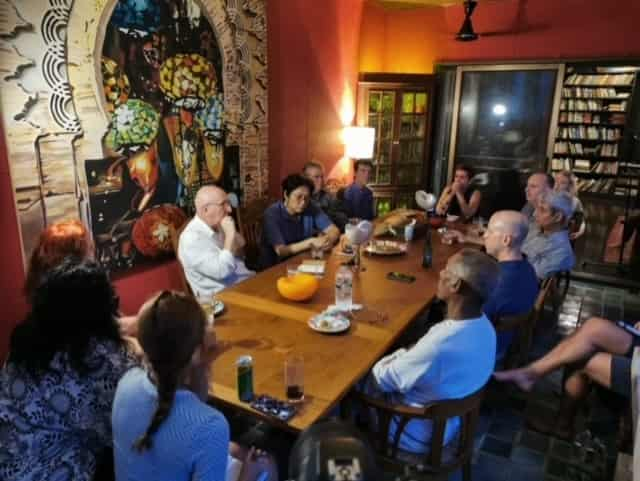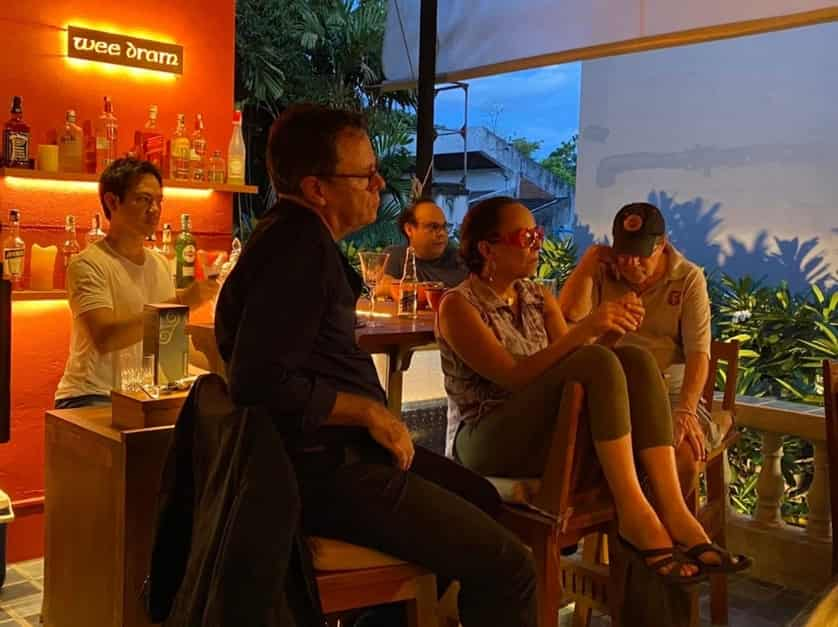One doesn’t have to be particularly observant to have a sense that something is amiss in the current world order. Stability is not the status quo, but rather something seemingly being pulled from under us. There are grave concerns that we are on the cusp of chaos and transition…or worse, a chaotic transition.
As an individual, a member of a family, a community, a nation or indeed a citizen of the planet how do we survive amidst this whirlwind of change?
This is the time to look at the seed forms that are emerging so that we can start to understand the aspects of the new society which is emerging.

A small group of lifelong watchers and amateur futurists as well as those interested in the complexities of the world we are in today and the possibilities of where where it’s going were invited to Editor-in-Chief Pim Kemasingki’s house for an evening conversation.
Two great minds, Michel Bawens and Gibin Hong attended the informal soirée at my house on the 16th of July between 6pm and 8.30pm where discussed:

Themes from the past: Looking at patterns in past transitions of civilisations in order to identify and understand the present.
Themes from the present: What factors are new today that were not there in the past? Communication technology? Decentralisation? Peer to peer organisations? Virtual global systems affecting traditional geographical systems. Looking at pioneering communities and what they are doing.
Themes from the future: History is an interplay between growth and conquest-oriented institutions; markets and states. How can we imagine a future world order that can guarantee production for human needs without destroying the planet’s viability? if the past is an incessant cycle between growth and collapse, is destabilisation inevitable? Let’s look at innovative institutions and solutions today.

What do these big changes mean to us? Can we find stability amongst the impending chaos?
Michel Bauwens is the founder of the P2P Foundation, a global organisation of researchers into decentralised infrastructures and modes of life that become possible with new technologies; he has visited hundreds of communities that are engaged with crafting change, and are building prototypes for new social institutions. He worked with governments, mayors, international organisations, and even with the Vatican.
Gibin Hong is the director of the Global Political Economy Institute. He advised the former mayor of Seoul, who crafted Seoul into a leading ‘sharing city’, collaborated with one of the leading presidential candidates around transforming Korea, and is currently working with the governor of the leading province. He is a leading influencer with his own Youtube channel and a translator of political economy classics such as Kate Raworth’s book on the Doughnut Economy.
A video of the evening’s discussions will be released in the coming weeks.

